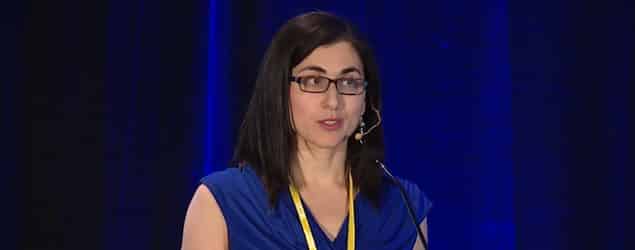Two Years After the Charlie Hebdo Massacre, ARI Continues to Defend Free Speech

In the two years since Islamic terrorists murdered five cartoonists and seven others associated with the Charlie Hebdo magazine in Paris, the Ayn Rand Institute has vocally and consistently upheld freedom of speech against its attackers. In public lectures, interviews, blog posts and a recent book — plus upcoming events on the same theme — the Institute has challenged individuals around the world to join in defending the right to free speech.
- On the day of the massacre two years ago, ARI senior fellow Onkar Ghate published “Freedom of Speech: We Will Not Cower,” stating: “When foreign governments, religious leaders and their faithful followers threaten and murder individuals for daring to speak, anyone who values his own life and freedom must stand with, and speak for, the victims.” Ghate called on everyone “to post and publicize the content that these totalitarians do not want us to see, as we are doing here. . . . The totalitarians are counting on self-censorship: that their threats and attacks will leave most of us too scared to speak out and criticize their doctrines. They then have a chance of killing the few individuals brave enough to defy them. We must end any hope that this strategy will prove effective.”
- On that same day, the first episode of the Yaron Brook radio show was devoted to an in-depth analysis of the attacks and their causes. In “Special Edition: What Happened to Free Speech?” ARI’s executive director examined the “long line of threats and attacks” that preceded the massacre, including the intimidation of Sony Pictures over The Interview, the 2011 firebombing of Charlie Hebdo, the deadly global riots in 2006 over cartoons of Mohammad in the Danish newspaper Jyllands-Posten, Iran’s death decree in 1989 against novelist Salman Rushdie and more. Brook explained how the resulting “climate of fear and self-censorship” caused TV networks to remove shows from the air, publishers to scrap plans for new books, and colleges to dis-invite commencement speakers such as Ayaan Hirsi Ali because of their views. A week later, in an episode called “Freedom of Speech Under Fire,” Brook interviewed Ghate about the fundamental issues involved and proper responses to the violent attacks.
- Just days after the attack, ARI hosted a panel discussion (captured on video), “Freedom of Speech or Tyranny of Silence?” at the Old South Meeting House in Boston, Massachusetts. The panelists were Flemming Rose, foreign editor of the Danish newspaper Jyllands-Posten and the author of Tyranny of Silence: How One Cartoon Ignited a Global Debate on the Future of Free Speech; Onkar Ghate, senior fellow at the Ayn Rand Institute; Harvey Silverglate, co-founder and chairman of the Foundation for Individual Rights in Education; and Jeff Jacoby, Boston Globe syndicated columnist. The moderator was Gregory Salmieri, philosophy fellow at the Anthem Foundation for Objectivist Scholarship.
- In April 2015, ARI’s director of Legal Studies, Steve Simpson, published “Condoning Violence; Destroying Free Speech” arguing against appeasement of religious terrorists: “What the appeasers ignore is the vast difference between speech and force. Thomas Jefferson captured the distinction long ago when he said, ‘it does me no injury for my neighbour to say there are twenty gods, or no god. It neither picks my pocket nor breaks my leg.’ Speech, no matter how offensive, is fundamentally an appeal to reason and choice. That’s true even if the speech in question is not actually reasonable, because the listener always has the choice to stop listening and walk away. Not so when the argument is made with bullets.”
- In May 2015 Simpson wrote “Attacks on Free Speech Come to the U.S.” responding to the aborted Garland, Texas, attack. Simpson wrote: “Whatever one thinks about Charlie Hebdo and the organizers of the Garland event or of any of the arguments or positions they take or support, there is no question that Islamists who threaten and use violence want to shut down all debate, all discussion, all thought, and all criticism of their religion. That is why they resort to violence.”
- In “Free Speech vs. Religion: An Interview with Onkar Ghate” (June 2015), Ghate talked about how to cope with criticism that one is being “intolerant” of religion when defending the rights of people like the Charlie Hebdo cartoonists and their associates. “If you get called names in the process, try to use this as a conversation starter and don’t become defensive. Ask the person what he means by ‘intolerance’ and if he can state his actual position. Is his view that we should obey every religious taboo? Many Hindus regard cows as sacred and find it offensive that we eat beef. Should we stop eating beef out of tolerance or respect? Or should we stop doing so only if a group of organized Hindus starts assassinating chefs at steakhouses? Won’t this encourage religionists to use violence? Or perhaps his view is that we should not criticize religion? Why not? And does he apply this to all religions, or just Islam? If just Islam, why does it warrant special status?”
- At ARI’s Objectivist summer conference in July 2015, Ghate delivered a hard-hitting talk (“Charlie Hebdo, the West and the Need to Ridicule Religion,” captured on video) discussing how Western reactions to attacks on free speech have emboldened Islamic totalitarians, how the term “Islamophobia” (as well as doctrines of multiculturalism and ethnicity) stifles rational discussion, how religionists attempt to place religion beyond rational criticism, and why there’s a need for bold atheists to marginalize faith through satire and ridicule.
- In December 2015, Simpson wrote “At the Heart of the Attacks on Free Speech, an Attack on Reason” explaining how the academic doctrines of postmodernism mesh with the Islamic totalitarian agenda: “Postmodernists and their fellow travelers don’t come to their views in precisely the same way as Islamists, but the two groups end up in the same place, intellectually speaking,” Simpson wrote. “Islamists believe that reality is an illusion created for us by an all-powerful entity called ‘Allah.’ Postmodernists and other prominent intellectuals believe that reality is an illusion created for us by an all-powerful entity called ‘the State’ or ‘society.’ Both pine for an effortless existence (in heaven or at the expense of the rich and powerful who stole this existence from the poor and oppressed). Both believe that the average man cannot understand the world or how to act in it and therefore needs an intellectual elite to tell him what to do.”
- Last January, Simpson published a post here at Voices for Reason lamenting “the hit that freedom of speech has taken this year — in the terrorist attacks and the shameful reactions to them in the West, in the failure of governments to protect this important right; in Charlie Hebdo’s decision to stop publishing images of Muhammad; in the animosity toward free speech that college students and many intellectuals increasingly display.” (“‘Je Suis Charlie’ No Longer: A Year After the Attacks, Is the West Betraying Free Speech?”)
- In May 2016 came “Is the First Amendment Enough?”, Simpson’s exploration (see video here) of the reasons that legal protections for free speech are not enough to preserve it, if people lose sight of why that freedom is essential to their lives.
- Most recently, ARI published Defending Free Speech, a book edited by Simpson that collects the items in this blog post and much more, making the philosophical and practical case for freedom of speech. “Ever since the fatwa against Salman Rushdie, the Ayn Rand Institute has been a morally and intellectually consistent defender of free speech,” said Flemming Rose, former editor of Jyllands-Posten and author of The Tyranny of Silence: How One Cartoon Ignited a Global Debate on the Future of Free Speech, in his assessment of Simpson’s book. “Its position is based on a simple truth: the individual is the most important minority in any society. Thus, for a society to be decent and civilized it has, through the force of reason, to be serious about the protection and cultivation of individual liberty.”
ARI’s work is ongoing. A panel discussion will be held at the University of Pennsylvania in Philadelphia on January 24, 2017, “Is Free Speech Under Attack?” featuring Flemming Rose, former ACLU president Nadine Strossen and Steve Simpson, and more events are planned. To stay up to date on ARI’s ongoing mission to defend free speech and to learn how you can join in the fight, subscribe to our Voices for Reason blog.



